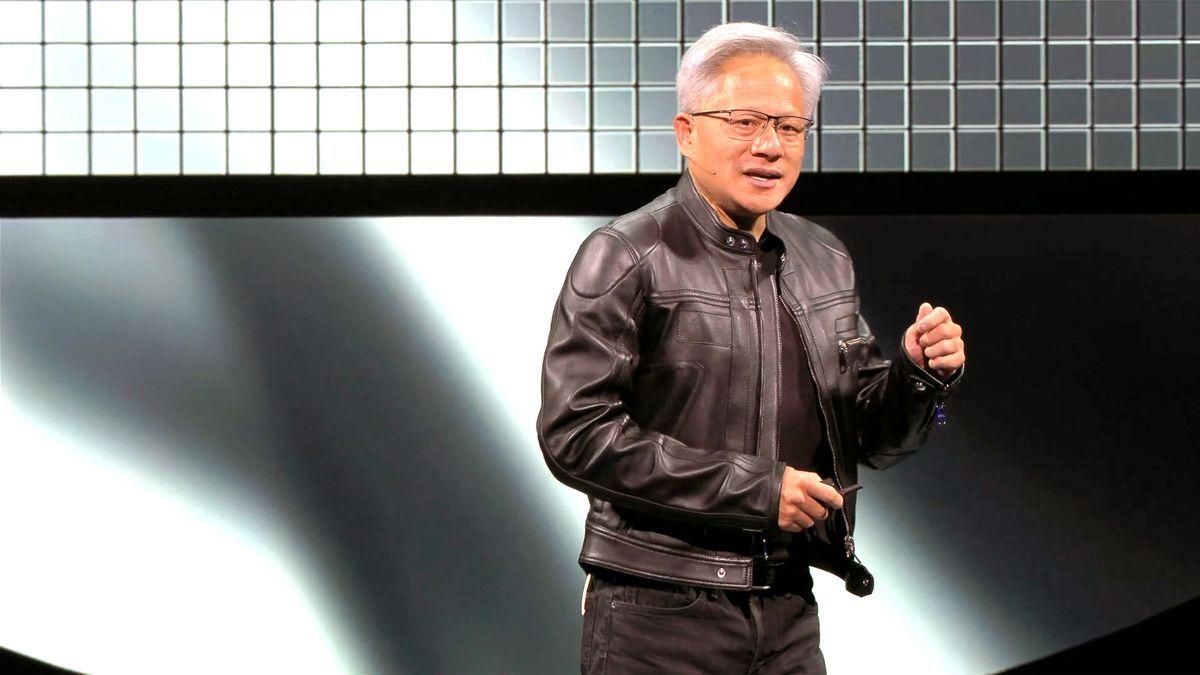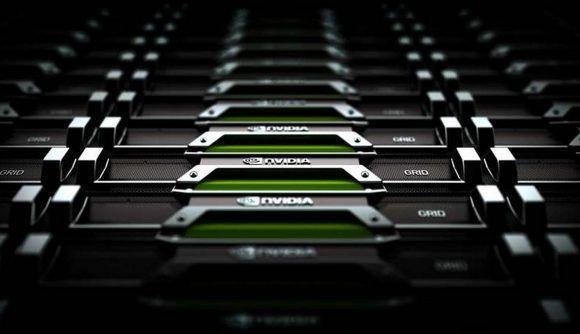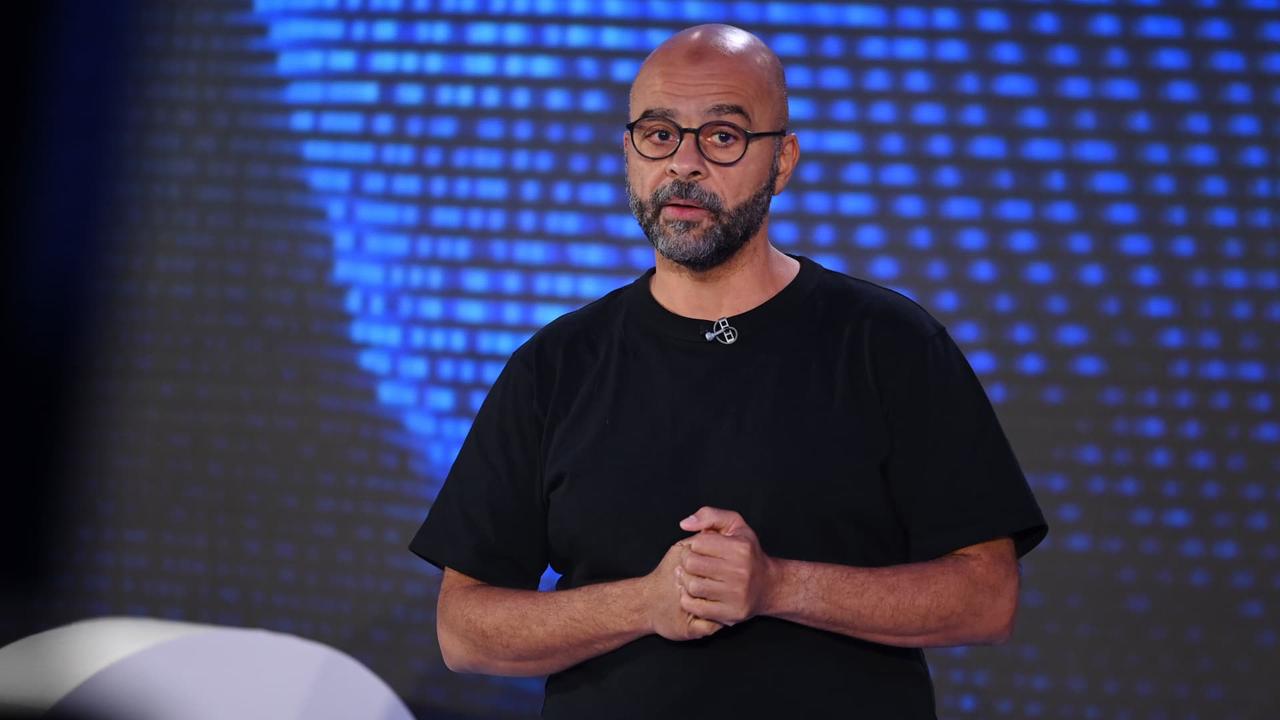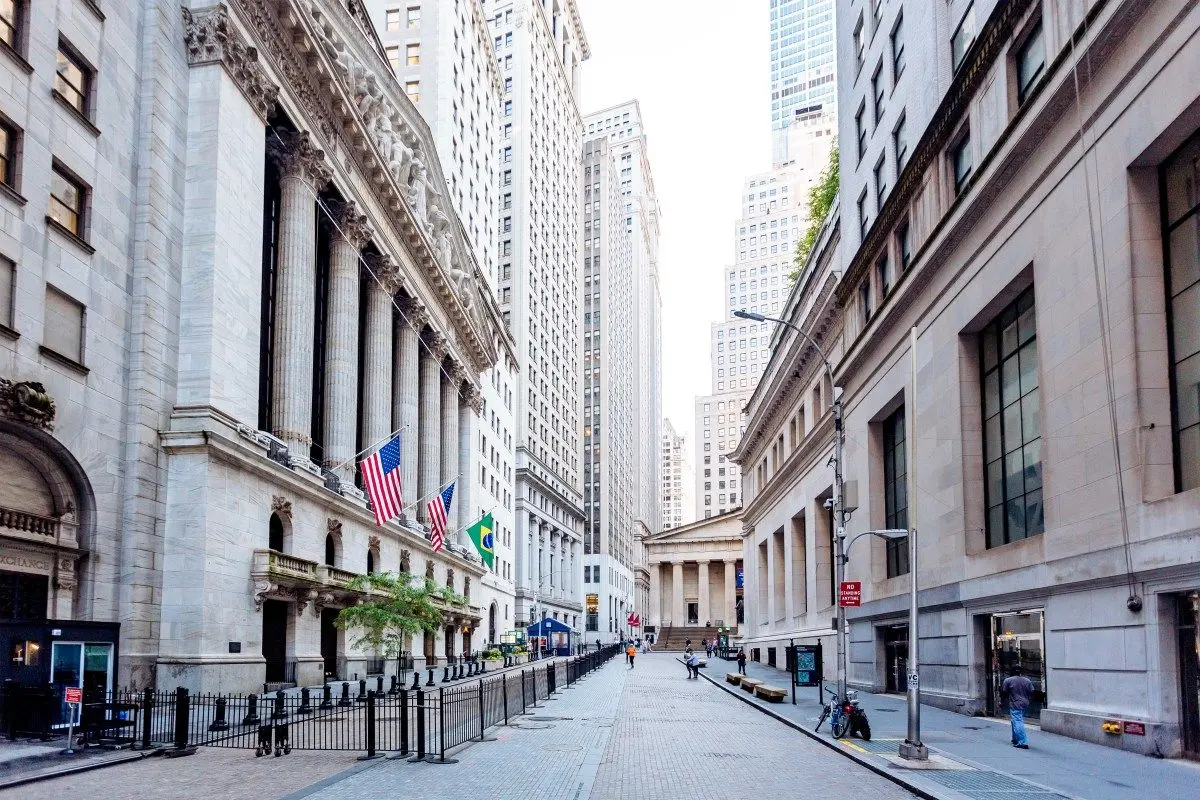Tech Billionaire Urges Honesty About AI's Impact on Jobs
2 Sources
2 Sources
[1]
Billionaire tech CEO says bosses shouldn't 'BS' employees about the impact AI will have on jobs
Kavanaugh, who has a net worth of $7 billion, stressed that overall he's an optimist when it comes to AI and its ability to improve productivity. Corporate leaders can't "bulls---" their employees about the impact of artificial intelligence on the workforce and the ways in which the technology will affect jobs more broadly, according to one tech billionaire. Jim Kavanaugh, the CEO of World Wide Technology (WWT), told CNBC that people are "too smart" to accept that AI won't change the way that they manage their work and that no jobs will be eliminated due to the transformative nature of the technology. WWT is an enterprise technology solutions provider that focuses on services such as cloud computing, IT security, data analytics, artificial intelligence, and consulting services. "If you think you're going to try to game this, and that you're going to tell employees nothing's going to change, and everything's going to be fine, that's just BS," Kavanaugh said in an interview last week. Kavanaugh noted that, though there is no playbook for how business leaders should communicate disruptive macroeconomic events, such as the Covid-19 pandemic and its impact on jobs, the job of a CEO is "to be as transparent as possible and always honest with their employees about where they stand." With AI, "there's going to be all kinds of changes," Kavanaugh added. "If I could give any advice, it's that everybody should be a student of AI and tech and not be afraid of it." Even though it's a given AI will impact the workforce, "none of us have it all completely figured out," he said. "If anybody comes in and tells you, 'I can tell you exactly how this is going to impact jobs and how it's going to impact everything we're doing,' they're lying. Because nobody knows." Kavanaugh stressed that, overall, he's an optimist when it comes to AI's positive impacts and its ability to improve productivity. "Sitting there and saying, 'I'm going to try to throw cold water on this fire, I'm going to try to put it out and ignore it,' that's a complete mistake." "I believe in embracing [AI] and learning and being realistic about it. Because there will be jobs that will be disrupted, there's no question about that. But, for the most part, I truly believe it will be an enhancer and an accelerator of what we're all doing," Kavanaugh told CNBC. Kavanaugh co-founded WWT in 1990 with fellow St. Louis, Missouri-based entrepreneur David Steward as a reseller of technology equipment. Today, WWT is a tech giant in its own right, generating revenues of $20 billion annually. Kavanaugh currently has a net worth of $7 billion, according to real-time data from business news magazine Forbes. Prior to co-founding the company, Kavanaugh represented the U.S. national soccer team in the 1984 Summer Olympics in Los Angeles.
[2]
Billionaire Tech CEO Says Not To 'BS' Employees, They Are 'Too Smart' To Believe AI Will Not Impact Their Jobs: 'If You Think You're Going To Try To Game This...'
Jim Kavanaugh, CEO of World Wide Technology, stated that leaders should not deceive employees about AI's impact on jobs. What Happened: In an interview last week, Kavanaugh emphasized that employees are "too smart" to believe that AI won't change job dynamics. He stressed the importance of transparency from CEOs regarding AI's effects, CNBC reported on Thursday. "If you think you're going to try to game this, and that you're going to tell employees nothing's going to change, and everything's going to be fine, that's just BS," Kavanaugh said Kavanaugh advised that leaders should embrace AI and educate themselves about it. He acknowledged that while AI will disrupt some jobs, it will also enhance productivity and create new opportunities. He also mentioned that no one can predict the exact impact of AI on jobs, and any claim to do so is misleading. Kavanaugh remains optimistic about AI's potential benefits. In related news, Clara Shih of Salesforce echoed similar sentiments, noting that AI will lead to new job descriptions rather than eliminating most jobs. Salesforce recently introduced an AI platform, AgentForce, to assist companies in various tasks. Additionally, Klarna has utilized AI to significantly reduce its workforce, highlighting the technology's role in reshaping business operations. See Also: Jeff Bezos Had A Habit Of Keeping An Empty Chair For The Most Important Person In The Room At Company Mee Why It Matters: The conversation around AI's impact on the workforce has been gaining momentum. In May, Bill Gates discussed AI's role in supporting both blue-collar and white-collar jobs. Gates noted that while AI assists employees and streamlines tasks, its impact on white-collar jobs is already evident. Recent studies show that 37% of companies have replaced staff with AI, and 44% predict AI will lead to layoffs in 2024. Further adding to the debate, an OpenAI engineer admitted that AI companies are taking away jobs, and there's little that can be done to stop them. This statement highlights the growing concern about AI's role in the job market and the need for proactive measures to address these changes. Moreover, LinkedIn co-founder Reid Hoffman predicted the end of the traditional 9-to-5 job by 2034, attributing this shift to AI and the gig economy. Hoffman argues that the workforce is undergoing a profound transformation, with increased productivity and flexibility but also uncertainty around stable employment. Read Next: Qualcomm Analyst: Samsung Can Fill Apple Revenue Void Image via Shutterstock This story was generated using Benzinga Neuro and edited by Pooja Rajkumari Market News and Data brought to you by Benzinga APIs
Share
Share
Copy Link
A prominent tech CEO advises against misleading employees about AI's influence on the workforce. He emphasizes the need for transparency and proactive measures to address the changing job landscape.

Tech CEO Calls for Transparency on AI's Job Impact
In a recent statement, a billionaire tech CEO has urged business leaders to be honest with their employees about the potential impact of artificial intelligence (AI) on jobs. The CEO, whose identity remains undisclosed, emphasized that employees are too intelligent to be misled about the transformative effects of AI on the workforce
1
.The Reality of AI's Influence
The tech leader stressed that AI is already reshaping various industries and job roles. He pointed out that it would be disingenuous for companies to claim that AI won't affect their employees' positions. Instead, he advocated for a more transparent approach, acknowledging the inevitable changes while focusing on how to navigate them effectively
2
.Proactive Measures and Adaptation
Rather than downplaying AI's impact, the CEO suggested that companies should proactively address the changing landscape. This includes:
- Investing in employee training and skill development
- Exploring new roles that may emerge due to AI integration
- Fostering a culture of innovation and adaptability
By taking these steps, organizations can better prepare their workforce for the evolving job market
1
.The Importance of Trust and Communication
The tech billionaire emphasized that maintaining trust between management and employees is crucial during this period of technological transformation. Open and honest communication about AI's potential effects can help build a more resilient and adaptable workforce
2
.Related Stories
Industry Reactions and Perspectives
While some industry leaders have echoed similar sentiments, others have taken a more cautious approach to discussing AI's impact on jobs. The tech CEO's statement has sparked discussions across the business world about the best ways to address AI-driven changes in the workplace
1
.Looking Ahead: Balancing Innovation and Job Security
As AI continues to advance, the challenge for businesses will be to balance technological innovation with job security concerns. The tech CEO's call for honesty may serve as a catalyst for more open dialogues between employers and employees about the future of work in an AI-driven world
2
.References
Summarized by
Navi
[1]
Related Stories
Walmart CEO Predicts AI Will Transform Every Job, Plans for Workforce Adaptation
28 Sept 2025•Business and Economy

Nvidia CEO Jensen Huang Weighs In on AI's Impact on Jobs and Innovation
14 Jul 2025•Technology

AI's Impact on the Job Market: CEOs Predict Boom in Skilled Trades Amid White-Collar Uncertainty
03 Oct 2025•Business and Economy

Recent Highlights
1
Google Gemini 3.1 Pro doubles reasoning score, beats rivals in key AI benchmarks
Technology

2
Pentagon Summons Anthropic CEO as $200M Contract Faces Supply Chain Risk Over AI Restrictions
Policy and Regulation

3
Canada Summons OpenAI Executives After ChatGPT User Became Mass Shooting Suspect
Policy and Regulation





